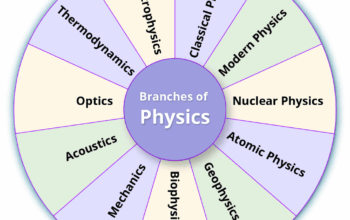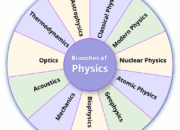The notion of the “Eureka moment,” typified by sudden epiphanies leading to scientific breakthroughs, has long been entrenched in the collective consciousness as an emblem of human ingenuity. This instantaneous revelatory experience, often romanticized, has become an alluring narrative in popular culture and academic discourse alike. However, a closer examination elucidates that significant advancements in science are rarely the product of mere flashes of insight. Rather, they are the culmination of persistent inquiry, systematic experimentation, and often a confluence of serendipitous occurrences interlaced with a plethora of failures and iterative processes.
To fully scrutinize what propels scientific breakthroughs, one must first engage with the socio-cultural context that underpins scientific discovery. Historically, the landscape of scientific advancement has been characterized by an interplay of collaboration and competition. The scientific community operates within a framework of shared knowledge, where the contributions of predecessors and contemporaries serve as stepping stones for future investigations. This interconnectedness shapes the milieu in which breakthrough ideas germinate.
Moreover, the sociopolitical environment frequently influences the trajectory of scientific innovation. For instance, during periods of intense social upheaval, such as wars or pandemics, there is often a concomitant acceleration in research and technological development. The urgency imposed by such crises compels researchers to pivot their focus and resources toward solutions that might alleviate widespread distress. The development of vaccines during the COVID-19 pandemic epitomizes this phenomenon: the confluence of necessity, funding, and collaborative efforts yielded unprecedented results in an expedited timeframe.
Nevertheless, beyond these contextual factors, one must consider the intrinsic characteristics of the scientific process itself. Scientists are inherently driven by curiosity—a relentless pursuit of knowledge that compels them to explore the unknown. This motivation is often complemented by a disposition toward skepticism, requiring empirical validation for hypotheses. Such a duality fosters a rigorous investigative approach, whereby methodologies are meticulously crafted, and conclusions drawn only after extensive validation through repetition and peer scrutiny.
This iterative aspect of scientific inquiry cannot be overstated. In many instances, the path to a significant breakthrough is fraught with obstacles that necessitate resilience and adaptability. Adaptation, often manifested as methodological shifts or interdisciplinary collaboration, can lead to unforeseen insights. For example, the integration of computational modeling within experimental biology has enabled scientists to simulate complex biological systems, thereby accelerating the discovery of novel therapeutic targets.
Additionally, it is paramount to acknowledge the role that failure plays within this narrative. Failure, often seen as a setback, is an inevitable component of the scientific method. Each unsuccessful experiment or flawed hypothesis provides invaluable data that informs future endeavors. The trope of “failing forward” resonates deeply within the scientific community, as eminent scientists often recount their missteps as instrumental in shaping their eventual success. The ability to glean insights from failure constitutes a hallmark of scientific perseverance and an essential driver of breakthroughs.
Another critical dimension is the role of technology in advancing scientific frontiers. The evolution of tools and techniques has historically catalyzed revolutionary changes across various scientific domains. From the microscope to the particle accelerator, each technological advance has opened new avenues for exploration and inquiry. Modern advancements in artificial intelligence and machine learning exemplify this transformative potential. These technologies are redefining data analysis, enabling researchers to process monumental datasets and uncover patterns that were previously obscured. Consequently, breakthroughs are no longer solely contingent upon human intuition but are augmented by computational prowess.
The allure of serendipity also warrants attention in the discourse surrounding scientific breakthroughs. Many groundbreaking discoveries arise from unanticipated findings during routine experimentation. The discovery of penicillin by Alexander Fleming serves as a quintessential example. Such serendipitous moments underscore the importance of maintaining an open mind and readiness to embrace the unexpected within the scientific endeavor. Researchers who cultivate a culture of curiosity and exploration are often better positioned to capitalize on these fortuitous occurrences.
Furthermore, the communication of scientific ideas plays a pivotal role in stimulating breakthroughs. Effective dissemination of knowledge through peer-reviewed publications, conferences, and educational outreach cultivates an informed public and inspires future generations of scientists. The exchange of ideas stimulates collaborative ventures that transcend disciplinary boundaries, fostering an environment ripe for innovation. The ability to articulate complex concepts in an accessible manner ensures that scientific advancements are not relegated to obscurity; rather, they become integral to societal progress.
In summary, the phenomenon of scientific breakthroughs transcends the simplistic narrative of a “Eureka moment.” It embodies a multifaceted interplay of cultural, contextual, methodological, and technological factors. The relentless pursuit of knowledge, fortified by resilience in the face of failure and buoyed by serendipitous findings, characterizes the scientific endeavor. As society navigates an increasingly complex and interconnected world, understanding the deeper mechanisms that drive scientific advancements becomes imperative. This comprehension not only enriches our appreciation for scientific achievements but also empowers the next generation of thinkers and innovators to contribute meaningfully to humanity’s collective quest for knowledge.










